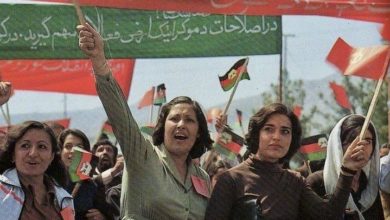On Friday, Sept. 4, NATO fighter jets, responding to a request from German coalition forces, dropped two 500-pound bombs on two hijacked fuel tankers near the village of Omar Khel, killing an estimated 125 people. Five civilian members of one family were among those incinerated in the fireball.
 |
Mohammed Omar, governor of Kunduz province in northern Afghanistan, said 90 people were killed, and a senior Afghan police official said that approximately 40 of them were civilians. A NATO fact-finding team, examining the site the day after the bombing, estimated that 125 people had died and at least two-dozen, but possibly many more, were civilians.
The number of people killed is not of central importance. What is important is that the U.S.-led NATO forces of occupation—which have no right to be in the country in the first place—dropped hundreds of pounds of bombs on a large group of Afghani people, without any regard for their lives.
Zabiullah Mujahid, a spokesman for the Taliban, described the situation. He noted that resistance fighters had hijacked the NATO supply trucks headed from Tajikistan to Kabul. When both vehicles were stuck in the mud as they attempted to cross the Kunduz River, the fighters invited local residents to obtain free fuel to lighten the load.
A member of the Kunduz provincial council who lived in the village, Abdul Moman Omar Khel, corroborated this account, saying, “The Taliban called to the villagers ‘come take free fuel.’”
German troops are in Kunduz under NATO control. The province has experienced an increased level of resistance to occupation this year, as the occupation forces have stepped up their attacks across Afghanistan.
According to reports in the Washington Post, the German commander viewed video of the tankers, shot from a U.S. fighter plane overhead. He ordered the bombing based on the word of one informant who said the people massed around the trucks were all Taliban fighters.
The ease with which such a murderous bombing was carried out suggests that U.S. General Stanley McChrystal’s recent directive to apply stricter controls on NATO bombings, ostensibly to reduce civilian casualties, may have been no more than a PR ploy. The military spin machine went into high gear after the bombing, with McChrystal, commander of the NATO mission in Afghanistan, guardedly indicating regret, saying he took the “possible loss of life or injury to innocent Afghans very seriously.”
The bombing has ongoing repercussions in Europe as well. In Germany, Chancellor Angela Merkel, who has called for an open-ended German commitment to remain in Afghanistan, has faced scathing criticism. German elections are less than a month away, and the Social Democrat Party is calling for a German withdrawal from the devastated country. Government leaders in Britain and France are also facing increased anti-war fervor for those countries’ participation in the U.S.-led occupation of Afghanistan.




